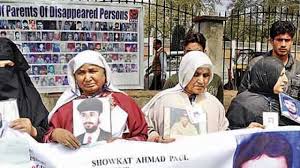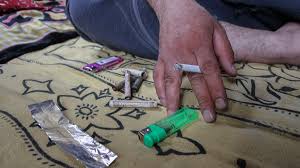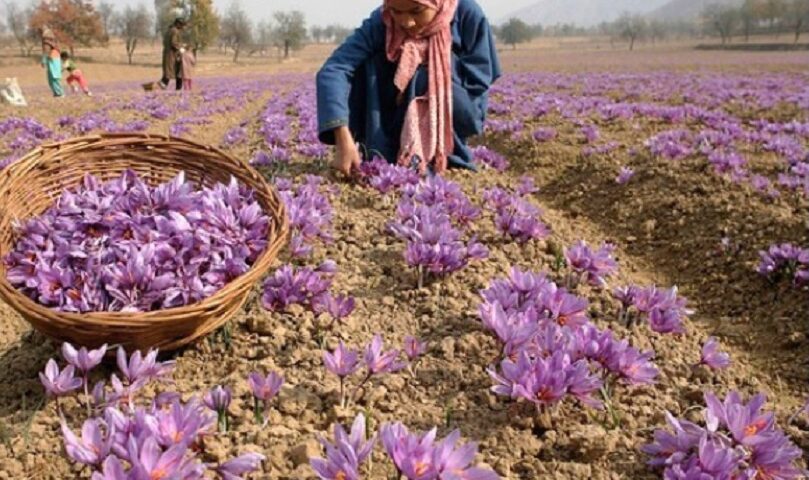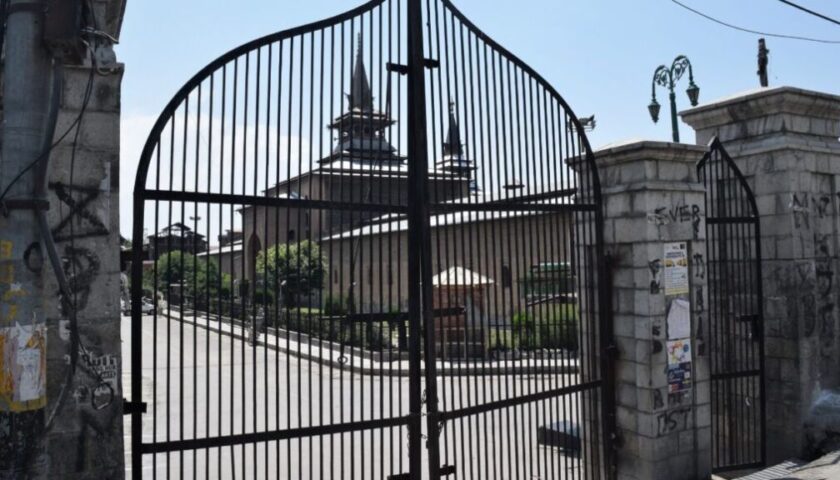On International Women’s Day, observed every year on March 8, Kashmiri women on Tuesday swarmed Press Enclave Srinagar to raise their voice against social crimes, atrocities that are prevalent in the society.
Wearing white head bands with “Association of Parents of Disappeared persons” written in black, a group of women staged protest to draw attention of authorities and to seek information about their loved ones, who have vanished, presumed dead or imprisoned without trial or record.
Many among these women who husbands have disappeared are called half-widows.
“We want the whereabouts of our dear ones. Isn’t this a grave atrocity against women like us? We have not been given the whereabouts of our husbands. Respect our emotions. If our dear ones have been killed, then the government should identify their graves so that we can hold religious rites for them. We don’t know whether they are dead or alive,” said a group of half-widows in press colony.
They said that on this International Women’s Day, the world should listen to the message of Kashmiri women, especially the half-widows. “We have been given this name, half-widow. This word describes our story and agony we have been facing,” they said.
One of the protesting woman, Khati, had come all the way from Kupwara to Srinagar to hold a protest demanding the whereabouts of her son who had disappeared almost a decade ago. “Where has he gone? Has he disappeared in the thin air?” she questioned.
These women say that on such a special event, the administration and the government of the time congratulate the people but they have never bothered to pay heed to their demands. “Don’t these rulers see us protesting every month? Why are they turning blind eye and how long will they continue to do so,” they said.
According to a report by the Association of Parents of Disappeared Persons (APDP), the women whose husbands have disappeared but have not yet been declared dead are in an especially precarious and dangerous situation.
The 2012 report “Half Widow, Half Wife” says that in such a situation, the women and children are left with little legal protection, rendering many of them desperate and homeless, and exposing them to abuse and exploitation.
Half widows of Kashmir left to grapple with uncertainty




